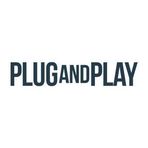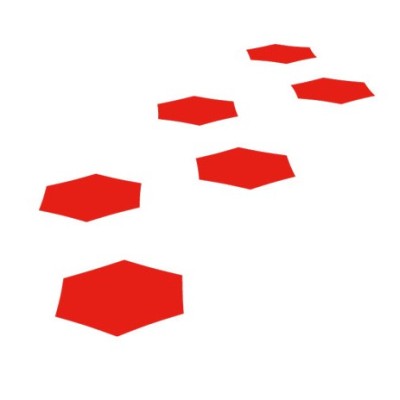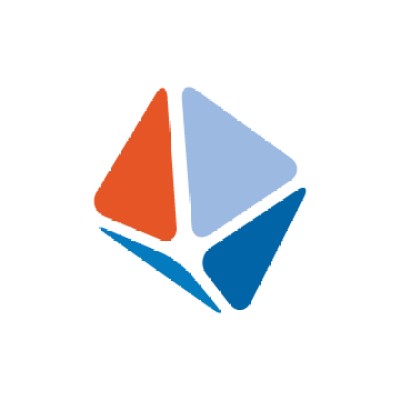European Tech Powers Up: Strategic Investments and Mergers Reshape Key Sectors
July 31, 2025, 9:36 am

Location: United States, California, Sunnyvale
Employees: 501-1000
Founded date: 2006

Location: Germany, North Rhine-Westphalia, Bonn
Employees: 51-200
Founded date: 2005
European startups secure significant funding across vital sectors. German RegTech Certivity landed €13.3 million for its AI-driven compliance software. DefenseTech ARX Robotics added €11 million for autonomous ground vehicles. GreenTech 1Komma5° received undisclosed capital to expand its energy management platform. Pet tech leader Tractive acquired US competitor Whistle, marking a major industry consolidation. ClimateTech firms Pina Earth and Tree.ly merged, strengthening forest climate protection efforts. These strategic investments and mergers signal robust growth, particularly in deep tech, AI, and sustainability. Europe solidifies its position as a global innovation hub.
European startups are fueling significant investment and merger activity. Germany's Certivity, a RegTech innovator, secured €13.3 million for its advanced AI compliance software. ARX Robotics, a burgeoning DefenseTech company, added €11 million to develop autonomous vehicles. GreenTech pioneer 1Komma5° attracted new capital to scale its clean energy platform. The pet technology sector saw a major move as Austria's Tractive acquired US rival Whistle. Furthermore, ClimateTech firms Pina Earth and Tree.ly merged, combining forces in forest climate protection. These developments highlight Europe's dynamic tech landscape and its focus on crucial, impactful solutions.
RegTech stands at the forefront of digital transformation. Certivity, based in Munich, exemplifies this trend. Founded in 2021, this startup tackles complex regulatory challenges. Its software streamlines reading and understanding vast legal documents. It fosters collaboration for interpreting intricate regulatory requirements. This innovation promises to revolutionize how industries manage compliance.
Certivity recently closed a substantial €13.3 million funding round. Key investors included American Enterprise-Software Investor Almaz Capital, UVC Partners, Earlybird X, High-Tech Gründerfonds (HTGF), and Plug and Play. This capital injection accelerates their go-to-market strategy. It drives further product development. It supports expansion into new industries and international markets. Previous funding totaled €1.4 million. This new round marks a significant vote of confidence.
Certivity operates on a B2B SaaS model. Companies pay an annual subscription. Pricing adapts to user count, feature scope, and industry demands. The company's genesis stems from personal experience. Founders, from legal, compliance, and software backgrounds, witnessed compliance chaos firsthand. Manual processes, often Excel-based, were inefficient and error-prone. This was particularly true in critical sectors like automotive. Constant regulatory changes compounded the problem. Certivity emerged from this critical need. It aims to transform compliance from a burden into a structured, digital process. Product safety remains paramount.
The challenges facing technical compliance are immense. Regulatory data is incredibly complex and fragmented. Documents exist in diverse formats globally. They lack uniform standards. They are often unstructured and linguistically difficult. Precision is non-negotiable in this field. Automating such data is highly demanding. Regulations are also deeply semantic. AI systems require specialized knowledge to grasp legal nuances. Exceptions and evolving interpretations demand expert integration. Constant regulatory changes pose another hurdle. Many updates lack clear versioning. This makes tracking modifications a daunting task. Certivity developed a system for automatic change detection. It consolidates and visualizes these updates in real-time. Regulatory work tolerates zero errors. A single missed requirement can cost millions. Certivity prioritizes accuracy, reliability, and legal traceability. This focus is embedded in both its technology and content.
Certivity holds ambitious plans for the future. They aim to become Europe's leading technical compliance platform within a year. Their focus extends beyond the automotive industry. They target rail, aerospace, and MedTech sectors. Their technology will integrate more deeply with engineering tools. This includes platforms like DOORS, Polarion, and Jira. They plan to double their document coverage. International expansion is a key objective, particularly in North America and Asia. Certivity seeks to be the category leader for digital, automated, and auditable compliance work. They are also expanding their team.
Certivity's fundraising journey was strategic. Founders initially lacked investor contacts. They built a network of over 200 investor contacts. This came through extensive work, networking, and visibility. Accelerator programs, startup events, and personal recommendations proved crucial. Pitch competitions also provided significant exposure. The company reached the finals at HKSTP. They secured second place at Germany’s "Digital Startup of the Year 2024." Their goal was not just capital. It was finding the right strategic partners. Earlybird X and HTGF were early, visionary supporters. Almaz Capital, UVC Partners, and Plug and Play joined later. These partners bring strong industry focus, experience, and valuable networks. A shared drive to redefine technical compliance unites them.
The DefenseTech sector also sees significant investment. ARX Robotics, a Munich-based firm, exemplifies this. Founded in 2022, ARX Robotics is a spin-off from a university research project. They specialize in scalable robotic systems. Their focus is autonomous unmanned ground vehicles (UGV). These vehicles serve both military and civilian applications. ARX Robotics recently secured €11 million. This extended Series A round involved Speedinvest and HV Capital. They had previously raised €31 million. Total funding now exceeds €50 million. This capital empowers further development in a critical, evolving sector.
Sustainability remains a vital investment area. 1Komma5°, a German GreenTech company, continues to attract capital. They aim to transition millions of households from fossil fuels to clean electricity. Their platform enables this shift. Sabanci Climate Ventures, the Turkish Sabanci Group's investment arm, provided new, undisclosed funding. This capital will accelerate organic growth. It will also scale their Heartbeat AI. This AI manages energy and functions as a virtual power plant. 1Komma5° achieved unicorn status in mid-2023. They reported €540 million in revenue for 2024. Their total funding surpasses €500 million. This underscores robust market confidence in clean energy solutions.
Mergers and acquisitions are reshaping various industries. The pet technology market experienced a significant consolidation. Austria's Tractive, a leading pet-tracking scaleup, acquired US competitor Whistle. Whistle was previously owned by Mars Petcare. This strategic acquisition expands Tractive's customer base. It integrates Whistle's technology assets. This move solidifies Tractive's leadership in a rapidly growing market. Tractive, founded in 2012, previously raised $35 million. The acquisition cost remains undisclosed. Industry observers suggest it could be among the largest for an Austrian scaleup. Tractive reported €100 million in Annual Recurring Revenue (ARR) for 2024. This signals strong market performance and growth potential.
ClimateTech firms are also forging alliances. Pina Earth, from Munich, and Tree.ly, from Dornbirn and Berlin, announced a merger. Both companies focus on forest climate protection projects. The combined entity will operate under the Pina Earth brand. This merger aims to combine strengths. These include software, project development, and sales capabilities. The goal is enhanced scalability, transparency, and regional impact. This benefits both forest owners and companies pursuing climate goals. Tree.ly founders will lead the new merged company. Pina Earth founders will transition to strategic advisory roles. Pina Earth previously raised €2.4 million. Tree.ly secured €5 million. This consolidation creates a more robust player in the carbon offset and environmental protection space.
These recent activities reflect broader trends in the European tech ecosystem. Significant capital flows into deep tech sectors are evident. AI, robotics, and complex software solutions attract major investment. Regulatory technology, defense applications, and green energy solutions are priorities. Strategic mergers demonstrate market maturity. Companies are consolidating to achieve greater scale and market dominance. Investors are looking for strong, defensible business models. The focus is on innovation that addresses critical global challenges.
Europe's startup landscape shows undeniable vitality. New funding rounds empower disruptive technologies. Strategic mergers create stronger market contenders. The continent is fostering innovation across diverse, impactful sectors. From AI-driven compliance to autonomous robotics and climate solutions, Europe's tech scene is rapidly evolving. It solidifies its standing as a major global player. The future of European tech looks robust and transformative.
European startups are fueling significant investment and merger activity. Germany's Certivity, a RegTech innovator, secured €13.3 million for its advanced AI compliance software. ARX Robotics, a burgeoning DefenseTech company, added €11 million to develop autonomous vehicles. GreenTech pioneer 1Komma5° attracted new capital to scale its clean energy platform. The pet technology sector saw a major move as Austria's Tractive acquired US rival Whistle. Furthermore, ClimateTech firms Pina Earth and Tree.ly merged, combining forces in forest climate protection. These developments highlight Europe's dynamic tech landscape and its focus on crucial, impactful solutions.
RegTech stands at the forefront of digital transformation. Certivity, based in Munich, exemplifies this trend. Founded in 2021, this startup tackles complex regulatory challenges. Its software streamlines reading and understanding vast legal documents. It fosters collaboration for interpreting intricate regulatory requirements. This innovation promises to revolutionize how industries manage compliance.
Certivity recently closed a substantial €13.3 million funding round. Key investors included American Enterprise-Software Investor Almaz Capital, UVC Partners, Earlybird X, High-Tech Gründerfonds (HTGF), and Plug and Play. This capital injection accelerates their go-to-market strategy. It drives further product development. It supports expansion into new industries and international markets. Previous funding totaled €1.4 million. This new round marks a significant vote of confidence.
Certivity operates on a B2B SaaS model. Companies pay an annual subscription. Pricing adapts to user count, feature scope, and industry demands. The company's genesis stems from personal experience. Founders, from legal, compliance, and software backgrounds, witnessed compliance chaos firsthand. Manual processes, often Excel-based, were inefficient and error-prone. This was particularly true in critical sectors like automotive. Constant regulatory changes compounded the problem. Certivity emerged from this critical need. It aims to transform compliance from a burden into a structured, digital process. Product safety remains paramount.
The challenges facing technical compliance are immense. Regulatory data is incredibly complex and fragmented. Documents exist in diverse formats globally. They lack uniform standards. They are often unstructured and linguistically difficult. Precision is non-negotiable in this field. Automating such data is highly demanding. Regulations are also deeply semantic. AI systems require specialized knowledge to grasp legal nuances. Exceptions and evolving interpretations demand expert integration. Constant regulatory changes pose another hurdle. Many updates lack clear versioning. This makes tracking modifications a daunting task. Certivity developed a system for automatic change detection. It consolidates and visualizes these updates in real-time. Regulatory work tolerates zero errors. A single missed requirement can cost millions. Certivity prioritizes accuracy, reliability, and legal traceability. This focus is embedded in both its technology and content.
Certivity holds ambitious plans for the future. They aim to become Europe's leading technical compliance platform within a year. Their focus extends beyond the automotive industry. They target rail, aerospace, and MedTech sectors. Their technology will integrate more deeply with engineering tools. This includes platforms like DOORS, Polarion, and Jira. They plan to double their document coverage. International expansion is a key objective, particularly in North America and Asia. Certivity seeks to be the category leader for digital, automated, and auditable compliance work. They are also expanding their team.
Certivity's fundraising journey was strategic. Founders initially lacked investor contacts. They built a network of over 200 investor contacts. This came through extensive work, networking, and visibility. Accelerator programs, startup events, and personal recommendations proved crucial. Pitch competitions also provided significant exposure. The company reached the finals at HKSTP. They secured second place at Germany’s "Digital Startup of the Year 2024." Their goal was not just capital. It was finding the right strategic partners. Earlybird X and HTGF were early, visionary supporters. Almaz Capital, UVC Partners, and Plug and Play joined later. These partners bring strong industry focus, experience, and valuable networks. A shared drive to redefine technical compliance unites them.
The DefenseTech sector also sees significant investment. ARX Robotics, a Munich-based firm, exemplifies this. Founded in 2022, ARX Robotics is a spin-off from a university research project. They specialize in scalable robotic systems. Their focus is autonomous unmanned ground vehicles (UGV). These vehicles serve both military and civilian applications. ARX Robotics recently secured €11 million. This extended Series A round involved Speedinvest and HV Capital. They had previously raised €31 million. Total funding now exceeds €50 million. This capital empowers further development in a critical, evolving sector.
Sustainability remains a vital investment area. 1Komma5°, a German GreenTech company, continues to attract capital. They aim to transition millions of households from fossil fuels to clean electricity. Their platform enables this shift. Sabanci Climate Ventures, the Turkish Sabanci Group's investment arm, provided new, undisclosed funding. This capital will accelerate organic growth. It will also scale their Heartbeat AI. This AI manages energy and functions as a virtual power plant. 1Komma5° achieved unicorn status in mid-2023. They reported €540 million in revenue for 2024. Their total funding surpasses €500 million. This underscores robust market confidence in clean energy solutions.
Mergers and acquisitions are reshaping various industries. The pet technology market experienced a significant consolidation. Austria's Tractive, a leading pet-tracking scaleup, acquired US competitor Whistle. Whistle was previously owned by Mars Petcare. This strategic acquisition expands Tractive's customer base. It integrates Whistle's technology assets. This move solidifies Tractive's leadership in a rapidly growing market. Tractive, founded in 2012, previously raised $35 million. The acquisition cost remains undisclosed. Industry observers suggest it could be among the largest for an Austrian scaleup. Tractive reported €100 million in Annual Recurring Revenue (ARR) for 2024. This signals strong market performance and growth potential.
ClimateTech firms are also forging alliances. Pina Earth, from Munich, and Tree.ly, from Dornbirn and Berlin, announced a merger. Both companies focus on forest climate protection projects. The combined entity will operate under the Pina Earth brand. This merger aims to combine strengths. These include software, project development, and sales capabilities. The goal is enhanced scalability, transparency, and regional impact. This benefits both forest owners and companies pursuing climate goals. Tree.ly founders will lead the new merged company. Pina Earth founders will transition to strategic advisory roles. Pina Earth previously raised €2.4 million. Tree.ly secured €5 million. This consolidation creates a more robust player in the carbon offset and environmental protection space.
These recent activities reflect broader trends in the European tech ecosystem. Significant capital flows into deep tech sectors are evident. AI, robotics, and complex software solutions attract major investment. Regulatory technology, defense applications, and green energy solutions are priorities. Strategic mergers demonstrate market maturity. Companies are consolidating to achieve greater scale and market dominance. Investors are looking for strong, defensible business models. The focus is on innovation that addresses critical global challenges.
Europe's startup landscape shows undeniable vitality. New funding rounds empower disruptive technologies. Strategic mergers create stronger market contenders. The continent is fostering innovation across diverse, impactful sectors. From AI-driven compliance to autonomous robotics and climate solutions, Europe's tech scene is rapidly evolving. It solidifies its standing as a major global player. The future of European tech looks robust and transformative.

